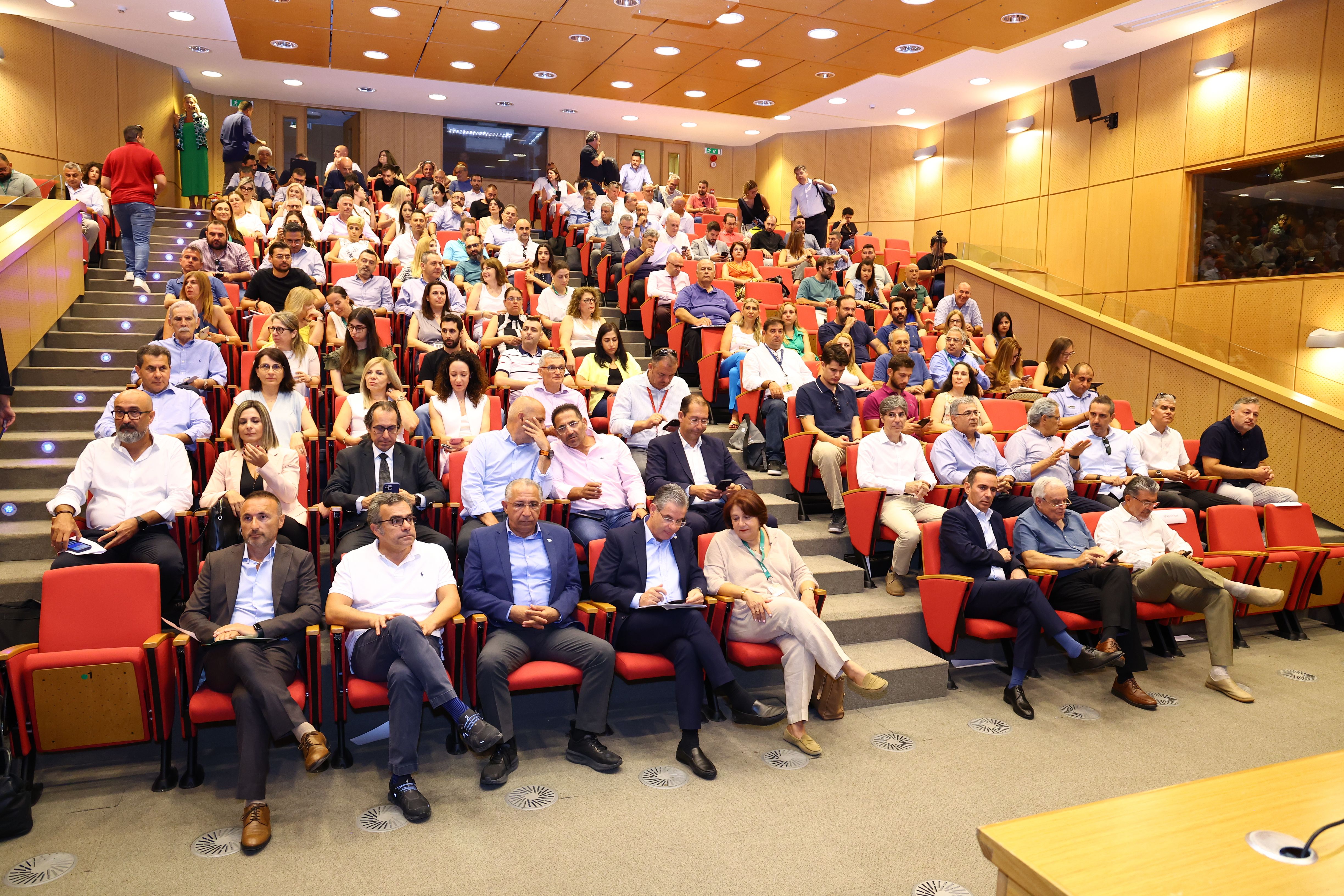The official launch of the Smart Cyprus project took place this week at the amphitheatre of Cyta’s headquarters in Nicosia.
According to an official announcement, the event marked the beginning of a major national initiative aimed at creating “a modern, green and sustainable model of development for Cyprus”, through the integration of smart city solutions across municipalities and communities.
Organised by the Deputy Ministry of Research, Innovation and Digital Policy in partnership with Cyta, the project is envisioned as a nationwide platform for smart city technologies.
These technologies, the announcement said, are designed to improve resource management, enhance public safety and deliver better citizen services through digital means.
Cyta was selected through a competitive tender to serve as the platform’s national operator.
In the first phase of the project, three smart vertical solutions will be implemented. These include smart lighting, smart parking and smart waste management systems.
Moreover, a mobile application will also be developed to facilitate communication and service access for citizens.
This phase is being funded with €35 million from the national recovery and resilience plan.
The funding also covers compensation for pre-existing investments made by individual municipalities, ensuring their early contributions are recognised within the platform.
The project is structured to allow for the continuous addition of new smart city solutions.
These will be managed through a cost-modelling system to be developed by Cyta under the supervision of the Deputy Ministry.
“This model will ensure transparency and economically efficient solutions for all participating public bodies,” the announcement mentioned.
Speaking at the event, Deputy Minister of Research, Innovation and Digital Policy Nicodemos Damianou described Smart Cyprus as “not just another technological intervention, but a horizontal, central infrastructure”.
He added “it is a platform designed from the outset based on the principles of interoperability and scalability, with the aim of strengthening the island-wide digital transition”.
Damianou also said that the project reflects “a modern development model demanded by our citizens – one that facilitates, protects and improves their daily lives”.
He further stated that the recovery and resilience plan provides “the technological foundation to gradually address even critical challenges such as environmental sustainability, energy efficiency and traffic management”.

He pointed out that Cyprus’ small geographic size makes a national horizontal approach particularly effective.
“This allows for economies of scale, avoids fragmented solutions, and guarantees equal access to innovation for all municipalities, large and small” he said.
Damianou stressed that Smart Cyprus is “a common platform for managing smart city solutions, leading to a unified citizen application, and eventually one that serves visitors too”.
He revealed that the ministry is also exploring ways to integrate Smart Cyprus with other digital public infrastructure such as electronic identity (IDme.cy), e-invoicing under the guidance of the Treasury, and the Digital Citizen wallet.
“These are all examples of infrastructure we need to build once, for the entire country” he said.
“The real value of the project lies in the platform’s potential to evolve into a dynamic, participatory ecosystem where each municipality and community can address shared and unique challenges,” he added.
According to the deputy minister, the project’s structure supports the ongoing integration of solutions in areas such as safety, environment and health, guided by the cost model that Cyta will manage with the ministry as guardian.
He thanked Cyta and the Electricity Authority of Cyprus (EAC), which has taken on an important role in the initial implementation phase.
“We are starting with simple digital solutions, but expectations for this project are high,” he said.
He emphasised that “as technology and artificial intelligence evolve, the concept of the smart city also evolves”.
“We expect a modern platform, capable of expansion, offering truly smart and useful solutions,” he continued. “I believe such a shared solution for the entire country will be a success for all.”



The Deputy Minister also extended an invitation for collaboration to all local authorities and stakeholders.
“To succeed in our goals, cooperation is essential” he stated. “We must work together – the State, municipalities, communities and citizens.”
He explained that the Smart Cyprus project is “not purely technological – it is a collaborative initiative between central government, local government authorities and the platform operator, and it will test our collective resilience”.
The minister explained that “we must all use Smart Cyprus as a national infrastructure, sharing knowledge, tools and experience, and together shaping the Smart Cyprus of tomorrow, with fewer burdens for local authorities, better services for citizens, and greater respect for people and the environment”.
Andreas Neocleous, CEO of Cyta, also addressed the event and emphasised the strategic importance of Cyta’s role in delivering critical digital projects.
He said “Cyta is here to ensure the correct implementation of the project – with common standards, speed and coordination”.
He added “we have both the experience and the expertise to deliver large and complex projects”.
He stated “the great challenge is for this project to be embraced by its key stakeholders – the District Local Government Authorities, municipalities, communities and others – as a shared digital vision”.
“We do not need ten different ‘smart’ cities” he said. “We need one Smart Cyprus, functioning as a whole, with services that make sense for citizens and their daily lives.”
Following the formal speeches, ministry and Cyta representatives gave detailed presentations on the Smart Cyprus platform, including its scope, technical features, provisions and implementation timeline.
The event concluded with an open discussion in the presence of representatives from local authorities, government bodies and other interested stakeholders.






Click here to change your cookie preferences